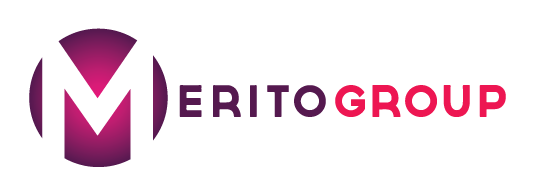Hire Right and Catch the Red Flags Early in the Interview Process
In today’s competitive job market, hiring the right talent is crucial for the success and growth of any organization. A comprehensive and effective interview process is essential in ensuring that the chosen candidates possess the skills, qualifications, and cultural fit required for the role.
However, it’s equally important to identify red flags during the interview process to mitigate potential risks associated with hiring the wrong candidate. Explore strategies to effectively recognize and address red flags in candidate interviews to elevate your hiring process and find the right candidate faster.
“… employees are in high demand, a solid resume is no guarantee of employment. Why? Because personality, cultural fit, and first impressions matter. “
All of us are capable of finding quality candidates on paper, but looking past the resume is a skill that takes time to develop. Take these 6 red flags as a starter’s guide to looking past the resume and to the core of the candidate.
1. Conduct Thorough Pre-interview Screening
Before the actual interview, conducting a thorough pre-interview screening can help identify potential red flags early on. Reviewing resumes, cover letters, and references can provide valuable insights into a candidate’s qualifications, experience, and suitability for the position. Look for inconsistencies or gaps in their work history, discrepancies between their resume and reference feedback, or any signs of poor performance or misconduct in their previous roles. This initial screening can help narrow down the candidate pool and save time during the interview process.
2. Pay Attention to Non-Verbal Cues
During the interview, non-verbal cues can reveal valuable information about a candidate’s demeanor, attitude, and interpersonal skills. Pay attention to their body language, facial expressions, and overall engagement throughout the interview. Signs of discomfort, excessive nervousness, or lack of eye contact could indicate potential issues, such as poor communication skills, lack of confidence, or even potential dishonesty. On the other hand, positive non-verbal cues, like active listening, enthusiasm, and appropriate gestures, can indicate a candidate’s genuine interest and compatibility with the role and company culture.
3. Evaluate Communication Skills
Effective communication skills are critical for success in any role, regardless of industry or level. During the interview, assess a candidate’s verbal and written communication skills by asking clear and concise questions and reviewing their responses. Pay attention to their ability to articulate their thoughts, provide relevant examples, and listen actively. Inconsistent or vague answers, difficulty in expressing ideas, or inadequate language proficiency can be red flags indicating potential challenges in collaborating with colleagues, clients, or stakeholders.
“Communication and interpersonal skills remain at the top of the list of what matters most to recruiters.”
John Baldoni gives his readers insight on five ways to sharpen your communitcation skills: know the fundamentals (people need to be able to express themselves properly on paper and spoken word), thinking clearly about what you will say, when it comes to business meetings come prepared for effective communication, and engaging in the discussion through listening is just as important as getting your own point across. Some people are excellent conversationalists, but are poor communicators. When interviewing be mindful of the difference. Some candidates might have excellent conversations, but still struggle to communicate.
As basic as it sounds, make sure that your candidates have a beginning, a middle, and an end when they are anserwing questions. An effective communicator will always have a point to what they are saying, they won’t just be filling the space with words.
4. Assess Problem-Solving and Critical Thinking Abilities
Identifying candidates with strong problem-solving and critical thinking abilities is essential, as they can contribute to innovation, efficiency, and decision-making within your organization. To evaluate these skills, incorporate situational or behavioral questions that require candidates to think on their feet and provide thoughtful responses. Look for candidates who can demonstrate analytical thinking, creativity, adaptability, and the ability to handle challenges effectively. Candidates who struggle to provide logical and well-thought-out answers or show limited problem-solving abilities may not be the best fit for positions that require these skills.
5. Investigate Professionalism and Cultural Fit
A candidate’s professionalism and cultural fit are crucial factors that can impact their success and integration within a team or organization. Assess how well a candidate aligns with your company’s values, mission, and work environment. Observe how they present themselves, their attitude towards previous employers and colleagues, and their level of respect and professionalism during the interview. Red flags can include negative or disrespectful comments about previous experiences, an inability to work collaboratively, or a misalignment with your company’s core values.

6. Verify Qualifications and Credentials
Lastly, it’s crucial to verify a candidate’s qualifications and credentials to ensure they possess the required skills and expertise. During the interview, ask specific questions related to their educational background, previous work experience, or technical competencies. If necessary, conduct reference checks or request additional documentation to validate their claims. Any inconsistencies, discrepancies, or unverifiable information can be significant red flags that warrant further investigation or potentially disqualify the candidate from the hiring process.
Mitigate Hiring Risks and Elevate Your Hiring Process
Effectively identifying red flags during candidate interviews is an essential aspect of making informed hiring decisions and mitigating potential risks. By conducting thorough pre-interview screenings, paying attention to non-verbal cues, evaluating communication skills, assessing problem-solving abilities, investigating professionalism and cultural fit, and verifying qualifications, you can enhance your hiring process and increase the likelihood of selecting the right candidate for your organization. Remember, being proactive and vigilant in identifying red flags will ultimately contribute to building a strong and successful team.

Ellie LaPosha
Marketing Manager
Meet Ellie, our esteemed team member who joined Merito Group in March 2023. With a background as the Marketing Director of a local wedding venue in Missouri, Ellie brings a wealth of experience in marketing strategy and execution. Prior to that, she honed her skills by working with small businesses, focusing on small business website design and brand development. Today, Ellie leads our dedicated marketing team, driving our clients’ success through user experience and digital marketing expertise. Her passion for creating impactful campaigns and delivering exceptional results makes her an invaluable asset to our organization.

